- عنوان کتاب: An Introduction to Statistical Learning with Applications in Python
- نویسنده: Gareth James
- حوزه: مدلهای آماری, برنامه نویسی پایتون
- سال انتشار: 2023
- تعداد صفحه: 617
- زبان اصلی: انگلیسی
- نوع فایل: pdf
- حجم فایل: 19.3 مگابایت
یادگیری آماری به مجموعه ای از ابزارها برای درک مجموعه داده های پیچیده اشاره دارد. در سالهای اخیر، ما شاهد افزایش خیرهکننده در مقیاس و دامنه جمعآوری دادهها در تقریباً تمام حوزههای علم و صنعت بودهایم. در نتیجه، یادگیری آماری برای هر کسی که میخواهد دادهها را درک کند، به یک ابزار حیاتی تبدیل شده است – و از آنجایی که مشاغل امروزی بیشتر و بیشتر شامل دادهها میشوند، این بدان معناست که یادگیری آماری به سرعت به ابزاری حیاتی برای همه تبدیل میشود. یکی از اولین کتاب ها در مورد یادگیری آماری – عناصر یادگیری آماری (ESL، توسط هستی، تبشیرانی و فریدمن) – در سال 2001 منتشر شد، با ویرایش دوم در سال 2009. ESL نه تنها در آمار بلکه به یک متن محبوب تبدیل شده است. در زمینه های مرتبط یکی از دلایل محبوبیت ESL سبک نسبتاً در دسترس آن است. اما ESL برای افرادی با آموزش پیشرفته در علوم ریاضی مناسب است. مقدمهای بر یادگیری آماری، با کاربردها در R (ISLR) – برای اولین بار در سال 2013 منتشر شد، با ویرایش دوم در سال 2021 – از نیاز آشکار به درمان گستردهتر و کمتر فنی از موضوعات کلیدی در یادگیری آماری ناشی شد. علاوه بر بررسی رگرسیون خطی، ISLR بسیاری از مهمترین رویکردهای آماری و یادگیری ماشین امروزی را پوشش میدهد، از جمله نمونهگیری مجدد، روشهای پراکنده برای طبقهبندی و رگرسیون، مدلهای افزایشی تعمیمیافته، روشهای مبتنی بر درخت، ماشینهای بردار پشتیبان، یادگیری عمیق، تجزیه و تحلیل بقا. ، خوشه بندی و آزمایش چندگانه. ISLR از زمانی که در سال 2013 منتشر شد، به یکی از پایههای اصلی کلاسهای درس در مقاطع کارشناسی و کارشناسی ارشد در سراسر جهان تبدیل شده است، و همچنین به یک کتاب مرجع مهم برای دانشمندان داده تبدیل شده است. یکی از کلیدهای موفقیت آن این بوده است که، با شروع فصل 2، هر فصل حاوی یک آزمایشگاه R است که نحوه اجرای روش های یادگیری آماری را که در آن فصل دیده می شود، نشان می دهد و تجربه عملی ارزشمندی را در اختیار خواننده قرار می دهد. با این حال، در سالهای اخیر پایتون به یک زبان محبوب برای علم داده تبدیل شده است و تقاضا برای جایگزینی مبتنی بر پایتون برای ISLR افزایش یافته است. از این رو، این کتاب، مقدمهای بر یادگیری آماری، با برنامههای کاربردی در پایتون (ISLP)، مواد مشابه ISLR اما با آزمایشگاههای پیادهسازی شده در پایتون را پوشش میدهد – شاهکاری که با اضافه شدن یک همنویس جدید، جاناتان تیلور، انجام شد. تعدادی از آزمایشگاه ها از بسته ISLP Python استفاده می کنند که ما آن را برای تسهیل اجرای روش های یادگیری آماری تحت پوشش هر فصل در پایتون نوشته ایم. این آزمایشگاه ها هم برای مبتدیان پایتون و هم برای کاربران با تجربه مفید خواهند بود. هدف پشت سر ISLP (و ISLR) تمرکز بیشتر بر روی کاربرد روش ها و کمتر بر روی جزئیات ریاضی است، بنابراین برای دانشجویان کارشناسی ارشد یا کارشناسی ارشد در آمار یا رشته های کمی مرتبط، یا برای افرادی در رشته های دیگر که مایلند مناسب است. برای تجزیه و تحلیل داده های خود از ابزارهای یادگیری آماری استفاده کنند. این می تواند به عنوان یک کتاب درسی برای یک دوره دو ترم استفاده شود. ما از این خوانندگان برای ارائه نظرات ارزشمند در مورد اولین نسخه ISLR سپاسگزاریم: Pallavi Basu، Alexandra Chouldechova، Patrick Danaher، Will Fithian، Luella Fu، Sam Gross، Max Grazier G’Sell، Courtney Paulson، Xinghao Qiao، Elisa Sheng، نوح سایمون، کین مینگ تان، شین لو تان. ما از این خوانندگان به خاطر اطلاعات مفید در مورد ویرایش دوم ISLR تشکر می کنیم: آلن آگرستی، ایین کارمایکل، ییقون چن، ارین کریگ، دیزی دینگ، لوسی گائو، اسماعیل لمهدری، برایان مارتین، آنا نوفلد، جف تیمز، کارستن وولکمن، استیو یادلوسکی، و جیمز زو ما از Balasubramanian “Naras” Narasimhan برای کمک او در ISLR و ISLP بی نهایت سپاسگزاریم. دیدن تأثیر قابل توجهی که ISLR بر روشی که در آن یادگیری آماری انجام میشود، چه در محیط دانشگاهی و چه در خارج از آن، برای ما افتخار و افتخار بوده است. ما امیدواریم که این نسخه جدید پایتون همچنان ابزارهای مورد نیاز برای موفقیت در دنیای داده محور را در اختیار آماردانان کاربردی امروز و فردا و دانشمندان داده قرار دهد.
Statistical learning refers to a set of tools for making sense of complex datasets. In recent years, we have seen a staggering increase in the scale and scope of data collection across virtually all areas of science and industry. As a result, statistical learning has become a critical toolkit for anyone who wishes to understand data — and as more and more of today’s jobs involve data, this means that statistical learning is fast becoming a critical toolkit for everyone. One of the first books on statistical learning — The Elements of Statistical Learning (ESL, by Hastie, Tibshirani, and Friedman) — was published in 2001, with a second edition in 2009. ESL has become a popular text not only in statistics but also in related fields. One of the reasons for ESL’s popularity is its relatively accessible style. But ESL is best-suited for individuals with advanced training in the mathematical sciences. An Introduction to Statistical Learning, With Applications in R (ISLR) — first published in 2013, with a second edition in 2021 — arose from the clear need for a broader and less technical treatment of the key topics in statistical learning. In addition to a review of linear regression, ISLR covers many of today’s most important statistical and machine learning approaches, including resampling, sparse methods for classification and regression, generalized additive models, tree-based methods, support vector machines, deep learning, survival analysis, clustering, and multiple testing. Since it was published in 2013, ISLR has become a mainstay of undergraduate and graduate classrooms worldwide, as well as an important reference book for data scientists. One of the keys to its success has been that, beginning with Chapter 2, each chapter contains an R lab illustrating how to implement the statistical learning methods seen in that chapter, providing the reader with valuable hands-on experience. However, in recent years Python has become an increasingly popular language for data science, and there has been increasing demand for a Python based alternative to ISLR. Hence, this book, An Introduction to Statistical Learning, With Applications in Python (ISLP), covers the same materials as ISLR but with labs implemented in Python — a feat accomplished by the addition of a new co-author, Jonathan Taylor. Several of the labs make use of the ISLP Python package, which we have written to facilitate carrying out the statistical learning methods covered in each chapter in Python. These labs will be useful both for Python novices, as well as experienced users. The intention behind ISLP (and ISLR) is to concentrate more on the applications of the methods and less on the mathematical details, so it is appropriate for advanced undergraduates or master’s students in statistics or related quantitative fields, or for individuals in other disciplines who wish to use statistical learning tools to analyze their data. It can be used as a textbook for a course spanning two semesters. We are grateful to these readers for providing valuable comments on the first edition of ISLR: Pallavi Basu, Alexandra Chouldechova, Patrick Danaher, Will Fithian, Luella Fu, Sam Gross, Max Grazier G’Sell, Courtney Paulson, Xinghao Qiao, Elisa Sheng, Noah Simon, Kean Ming Tan, Xin Lu Tan. We thank these readers for helpful input on the second edition of ISLR: Alan Agresti, Iain Carmichael, Yiqun Chen, Erin Craig, Daisy Ding, Lucy Gao, Ismael Lemhadri, Bryan Martin, Anna Neufeld, Geoff Tims, Carsten Voelkmann, Steve Yadlowsky, and James Zou. We are immensely grateful to Balasubramanian “Naras” Narasimhan for his assistance on both ISLR and ISLP. It has been an honor and a privilege for us to see the considerable impact that ISLR has had on the way in which statistical learning is practiced, both in and out of the academic setting. We hope that this new Python edition will continue to give today’s and tomorrow’s applied statisticians and data scientists the tools they need for success in a data-driven world.
این کتاب را میتوانید از لینک زیر بصورت رایگان دانلود کنید:
Download: An Introduction to Statistical Learning with Applications in Python




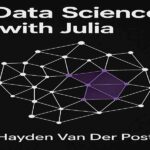
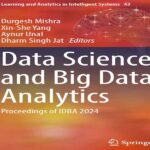
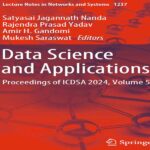

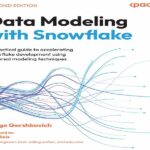
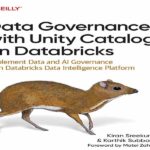
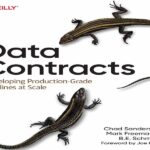
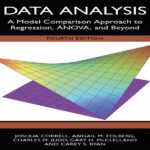

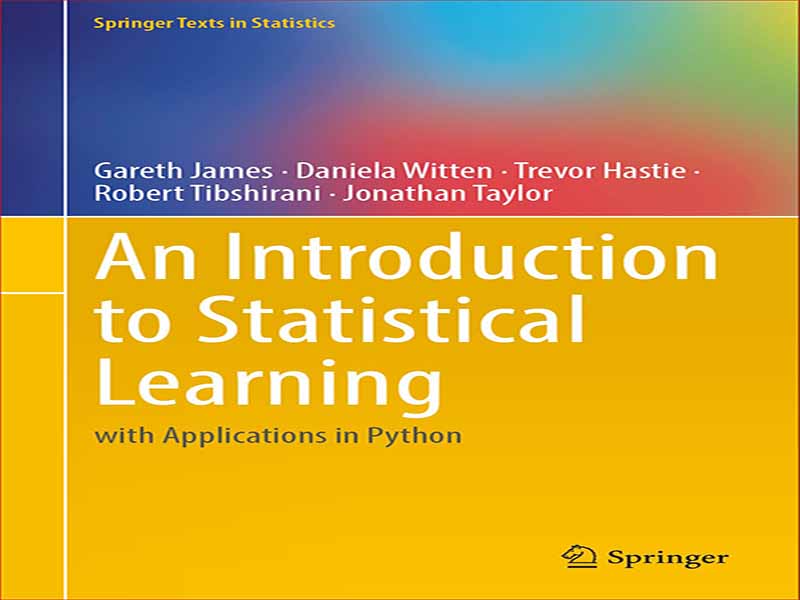

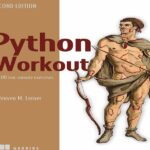
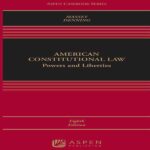



















نظرات کاربران